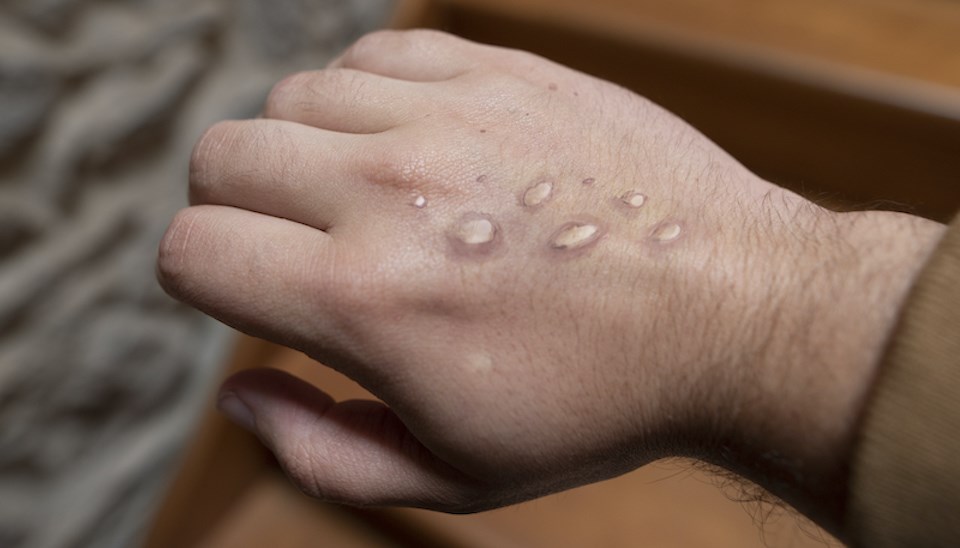As cases of monkeypox surge across parts of the world, many B.C. residents have searched for information about symptoms of the rare virus — but experts say it may be difficult to identify in its early stages.
For one thing, early monkeypox symptoms are similar to a vast array of other viruses. In the early stages of infection, people may feel feverish, have chills, an intense headache, backache, or extreme fatigue. These symptoms are present at stages of the flu, coronavirus, colds, shingles, chickenpox, strep throat, pneumonia, and many other viral and bacterial infections, so it can be difficult to ascertain what is wrong.
Regardless of what infection you have a local expert says your behaviour should stay the same if you feel sick: you must stay home.
Anyone showing severe symptoms should go to the hospital, but most people who are ill should isolate themselves and contact their doctor to determine the next steps.
After the incubation phase of viral infections, the body begins to start fighting infection during the prodromal phase, explains Dr. Brian Conway, the medical director at the Vancouver Infectious Diseases Centre (VIDC). During this phase, symptoms are not specific to the virus someone has been infected with (that's why so many viruses begin with "flu-like" symptoms).
"So all viral illnesses during that viral phase of the disease where the virus is replicating in the body, as the body starts to react to it, you feel unwell, you have a headache, muscle pains," he told Vancouver Is Awesome in a phone interview.
"You have a fever [and] you feel very lethargic, so that's a flu-like illness. So that initial part of the monkeypox illness is identical to influenza, identical to COVID, and identical to many viral infections that we see on an ongoing basis."
Monkeypox Canada: What to keep in mind
Conway, who is also an assistant professor in the Department of Pharmacology and Therapeutics at the University of British Columbia, adds that the risk of contracting monkeypox in B.C. is also quite low.
In other words, there's no cause for alarm.
"But one thing we've learned in a COVID world is if you're sick, stay away from other people and stay home," he notes. "We need to be concerned whenever a new pathogen has been identified in the community. That should solicit concern."
While flu-like symptoms are indicative of numerous infections, the monkeypox rash may be confused with several other illnesses, too. Part of this confusion lies in the various ways it presents amongst individuals, as well as limited epidemiological and laboratory information.
Some people may confuse it with another virus, such as chickenpox, because it starts with a fever and then develops into blisters on the skin that scab and go away, explains Conway. While they are quite different, they are similar enough that this could cause confusion for someone who develops symptoms.
The World Health Organization assesses the current global risk of the rare virus as "moderate," given that it is the first time it has spread in large clusters without "direct immediate travel links to areas that have long experienced monkeypox."
Have a look at everything you need to know about monkeypox, including symptoms, how the virus spreads, and what B.C. residents need to know.



